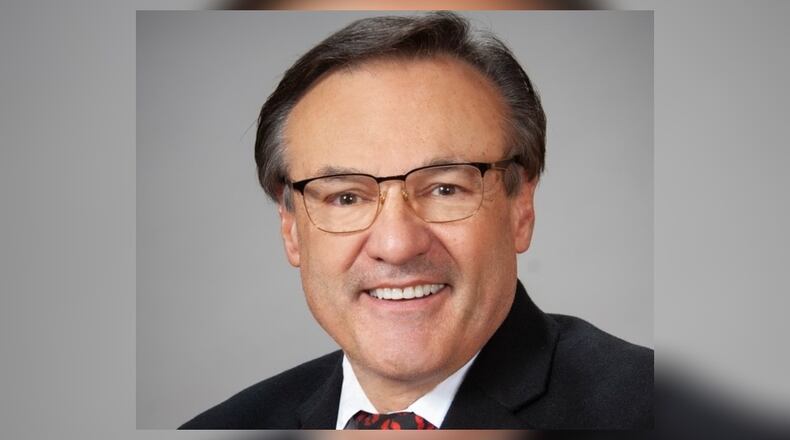The bill requires schools each year to provide instruction in sexual abuse prevention for grades K-6, and in sexual violence prevention education for grades 7-12.
Nationwide 37 other states have adopted a version of “Erin’s Law,” named for Erin Merryn. Now a spokesperson for the National Children’s Alliance, she was sexually abused for six years as a child. As an adult, she advocates for schools to teach children personal body safety. In June, Merryn drove from Chicago to Columbus to testify in support of the bill for the third time in seven years.
Repeated attempts to pass it in Ohio failed. Lipps said he and Kelly pushed as hard as they could to get the bill through.
“It was a terrible process. The most exhausting week of my career,” he said. “We considered this our single most important piece of legislation.”
The final version contains several changes sponsors aren’t happy with, Lipps said, but if the bill failed it would have to be re-filed when the 135th General Assembly convenes next year — and that would mean survivors of childhood sexual assault would be called back to testify again, even after doing so repeatedly.
“We felt like no, we cannot ask the victims to do that,” Lipps said. “In our opinion we probably got 60% of what we wanted, but what we really got was that the victims and the survivors do not have to come back.”
A major driver of his sponsorship was a Springboro abuse case. Former Clearcreek Elementary School gym teacher John Austin Hopkins was convicted in 2020 on 34 counts of gross sexual imposition involving 27 first-grade girls during the 2018-19 school year. He was accused of acting inappropriately with 88 students. Hopkins was sentenced to eight years in prison.
Lipps and Kelly introduced House Bill 105 in February 2021. It passed the House 86-8 in June 2021, but stalled until last week in the Senate Primary & Secondary Education Committee. Lipps blamed that delay on pressure from the Center for Christian Virtue.
“They wanted to amend the bill to abstinence (education) only,” he said. That would have removed the bill’s main point, to help children recognize “bad touch” and the need to report it, Lipps said.
At the bill’s fourth hearing Dec. 13, in the Senate Primary & Secondary Education Committee, the CCV reversed its opposition to the bill in anticipation of amendments.
“I am pleased to be here in support of the Amended HB 105,” said David Mahan, CCV director of policy.
He called Merryn an “unintentional Trojan horse” for “radical progressive sex education,” but said the expected changes made the bill acceptable.
Those changes emerged in a fifth hearing the next day, which took seven minutes to adopt a substitute bill, make two amendments, and vote the revised version out of committee.
The substitute bill added an opt-out provision, allowing parents to prevent their children from receiving the instruction, said state Sen. Andrew Brenner, R-Delaware, the committee chairman.
“I will say that I actually talked to Erin (Merryn) directly on this one, and other states have adopted this type of language,” Brenner said.
Merryn said at a June hearing on the bill that she didn’t object to an option to decline the training. Ten of the 37 states that have passed Erin’s Law have similar provisions.
“I don’t like it, because what if the parent is the abuser? They’re going to opt out of that instruction.” Lipps said.
An amendment from state Sen. Sandra O’Brien, R-Ashtabula, changed the bill’s wording saying schools must offer “age appropriate” instruction to “developmentally appropriate,” and that no organization that provides abortion services or counseling can be involved in the instruction.
No other states have that prohibition, and it doesn’t belong in the bill, Lipps said. But he and Kelly agreed that inclusion was better than having to start over.
The amendment was aimed at keeping Planned Parenthood out of the process, but it may have an unintended effect, Lipps said.
“Crisis pregnancy centers provide abortion counseling, so now they’re out,” he said. Crisis pregnancy centers, backed by conservative and religious groups, steer women away from abortion services.
Another amendment from O’Brien requires that someone from law enforcement or the local prosecutor’s office be included in the instruction, Lipps said. But neither police nor prosecutors want to be involved, he said — not all schools have officers on site, prosecutors don’t have staff to spare, and neither may have relevant training themselves. That inclusion amounts to an unfunded mandate, Lipps said.
He said Republican leaders in the House and Senate agreed around 8 p.m. to include Sub HB 105 as one of many additions to Senate Bill 288, which was already an omnibus criminal justice reform. Lipps credits them for adding it in the midst of shepherding dozens of other bills through the all-night session.
About the Author

